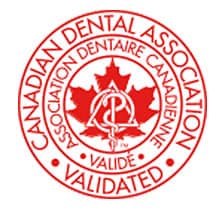Do You Know What's In Your Toothpaste?
It seems like a daunting task to navigate the toothpaste aisle these days. There are so many different types of toothpaste to choose from. How do you know you are using the right one?
If you understand what's in them, you can make the best decision for your overall oral health.
Active ingredients in Toothpaste
Fluoride
To me this is the main attraction and most important ingredient in toothpaste. Fluoride is a naturally occurring mineral that integrates with your enamel making it harder to get a cavity. That is to say, your teeth become less susceptible to breakdown or demineralizing from the acidic byproducts of food and sugar in your mouth. With more fluoride exposure, the tooth chemically becomes stronger and less likely to "cavitate" or develop a hole in the presence of those same acids. Sodium fluoride is the most common source of fluoride, but stannous fluoride may also be found in some brands.
Inactive ingredients
Abrasives
These insoluble particles help remove plaque from teeth. Removing plaque helps decrease the risk of cavities and periodontal disease. Abrasives are usually found in the form of calcium carbonate or dehydrated silica particles.
Flavours & Toothpaste
Although sometimes it may taste like it, toothpaste does not contain sugar. The flavours added to toothpaste generally come from either saccharin or sorbitol. With so many varieties on the market, you'll be hard-pressed to not find something you will like. Sorbitol is also a humectant. A what? A humectant traps water in the toothpaste so that when you squeeze the toothpaste out of the tube, it comes out with an even and smooth texture. Glycol or glycerol can also do that.
Detergents/Surfactants
When we brush our teeth, the more we scrub the more our toothpaste seems to foam. Sodium laurel sulfate is a common detergent that allows toothpaste to foam when we brush. This allows for a more uniform distribution of toothpaste, improving the cleaning ability.
Now that we know what's in toothpaste, how can we use that to decide what type is best?
Whitening ???
Due to popular demand, most brands of toothpaste come in a whitening option. This toothpaste will either contain some low percentage of peroxide (the same ingredient found in bleaching gels) or abrasives. The abrasives in the toothpaste remove surface stain only…they do not change the natural colour of teeth or reverse discoloured restorations. To take away stains, abrasives contained in the toothpaste gently polish teeth. Used too often, these abrasives can slowly wear away the enamel of your teeth.
Herbal or Natural Toothpaste
Buyer Beware! These toothpastes are marketed to those who wish to avoid fluoride or sodium laurel sulfate. Ingredients in these toothpastes often include baking soda, aloe, and essential oils. These toothpastes do not protect the teeth from decay!
Anti- Sensitivity Toothpaste
Desensitizing toothpastes' main active ingredient is potassium nitrate. This chemical "plugs up " communications from the outer layer of tooth structure to the inner nerve of the tooth, thereby blocking pain signals. Teeth are normally protected from the elements of temperature by the outer layer of enamel. Once enamel is worn away or your gums have receded enough to expose a certain amount of root surface, the inner part of the tooth (made of tiny tunnels) is exposed to air or temperature leading to sensitivity. This toothpaste works in the right situations, but see your dentist if you are experiencing sensitivity… it may be a sign of decay. One final note about anti-sensitivity toothpaste: you should use it continuously. The active ingredient needs to be used daily to be effective.
High Fluoride Toothpaste
These are what they sound like: toothpastes with a higher level of fluoride than your regular tube of toothpaste. These toothpastes are over the counter at your pharmacy, but talk to your dentist before reaching for these as they are only recommended in certain situations. I often recommend these toothpastes to people with dry mouths (xerostomia), often seniors or patients on multiple medications that dry out the mouth. Dry mouth leads to a higher risk of decay. The stannous fluoride concentration here is also beneficial for anti-sensitivity relief.
 Above all, look for the Canadian Dental Association seal of approval to know whether your toothpaste is recommended for your best oral health.
Above all, look for the Canadian Dental Association seal of approval to know whether your toothpaste is recommended for your best oral health.
Stay Healthy!



